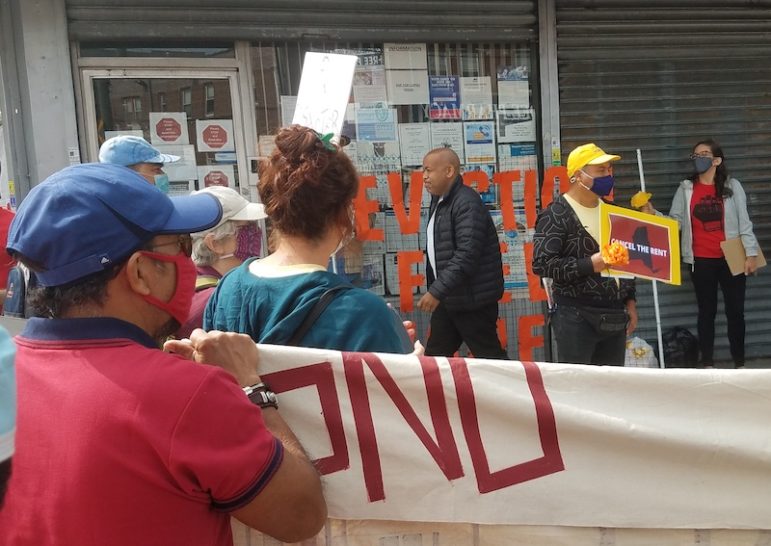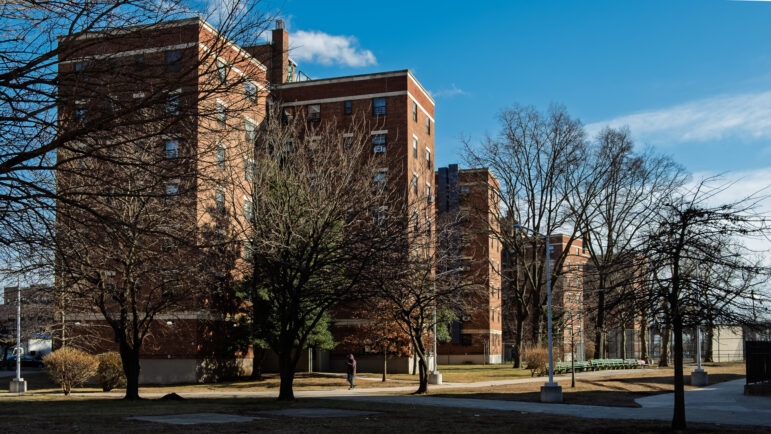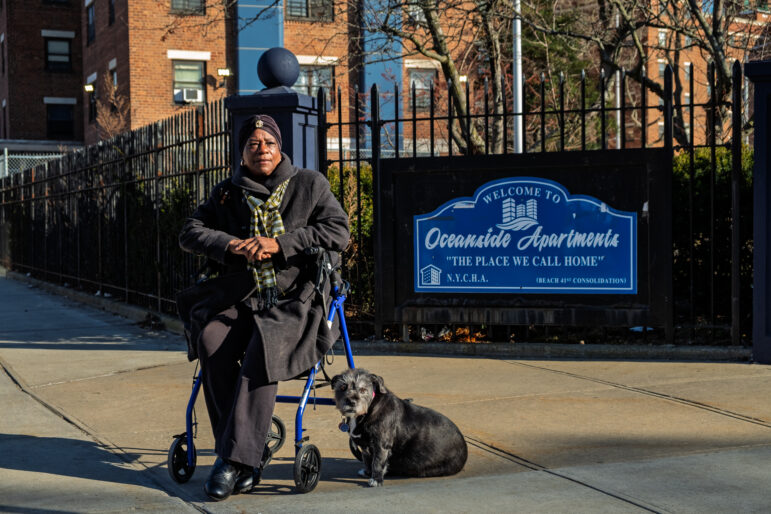But Carl Heastie says the next move in the response to the COVID-19 pandemic is the federal government’s to make.

Murphy
Speaker Heastie makes his way through the crowd at a September 15, 2020 protest outside his Gun Hill Road office.Dozens of housing advocates from around the city descended on Assembly Speaker Carl Heastie’s Bronx office on Tuesday to demand state action to protect renters ahead of the looming October 1 lapse of an eviction moratorium.
While a federal eviction ban is in place through the end of the calendar year, advocates are concerned about its limitations and durability. Landlord organizations, meanwhile, have warned that calls to cancel rent threaten to cut off revenue that pays workers and funds maintenance at buildings.
The protesters were led by a mariachi band.
Advocates are pushing the legislature to move three pieces of legislation they say are necessary to address the deep economic impact of COVID-19.
The Rent and Mortgage Cancellation Act of 2020 would provide relief from housing payments for renters and small homeowners during the COVID-19 public state emergency. Bill S8667 would extend the eviction and foreclosure moratorium until the “end of the state of emergency in the state of New York plus one full year.” And bill S7628A would provide housing vouchers for eligible individuals and families who are homeless, or who face an imminent loss of housing.
Hear Bronx housing advocate Fitzroy Christian address the crowd, and marcher Nathan Jones talk with a reporter about the rent strike in his building and what “cancel rent” means to him:
Heastie arrived at his office about an hour into the protest, gave a friendly wave, and went inside. He emerged a few minutes later to talk at some length with the crowd.
“The pandemic is a federal issue and it needs a federal solution,” the speaker said. “I’m asking you to be patient.”
“People are looking for a state solution to a federal problem. I’ve said that every option is on the table if the federal government doesn’t act. These things will require lots and lots of money,” he continued, apparently referring not just to the proposed voucher program but to the likelihood that the state would provide some resources to make up revenue to landlords if it cancelled rent or held off evictions beyond the current moratoria. “We just don’t have the state resources at this point. We need to let the federal government step up.”








